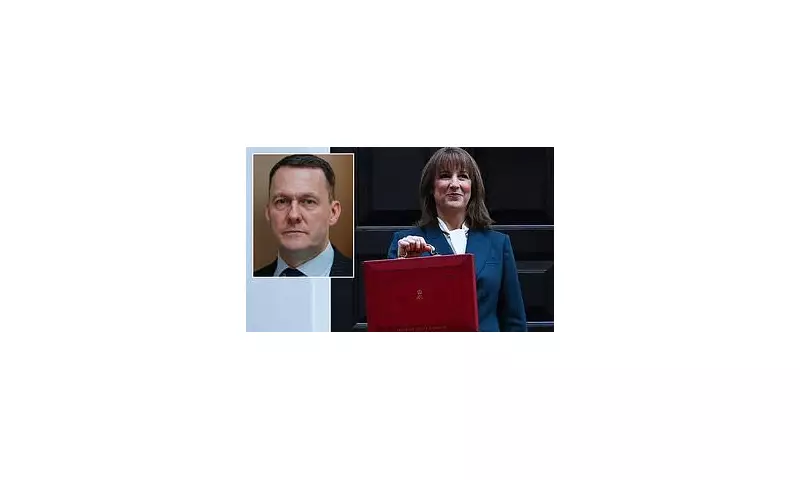
Chancellor Rachel Reeves has delivered what critics are calling a devastating second budget that imposes £26 billion in tax rises on British families and businesses, despite previous promises that her punitive measures would be a one-off.
A Budget of Broken Promises
The highly anticipated fiscal announcement followed weeks of chaotic briefings and policy U-turns from Downing Street, culminating in what Scottish Conservative leader Russell Findlay described as a "brutal budget" that lived down to all expectations. The Chancellor's latest measures come after her first budget last year introduced controversial policies including National Insurance hikes and the so-called Family Farm Tax, which had immediate negative impacts on jobs and economic growth.
Findlay noted that every word of Reeves' speech "oozed anti-aspiration, anti-business and anti-growth," pointing to the government's failure to tackle reckless welfare spending while surrendering to backbench pressure. This approach has allegedly expanded Labour's financial black hole, with the Chancellor's sums "inevitably still don't add up."
Widespread Tax Increases Hit Households and Businesses
The budget introduces what critics call underhand new or increased taxes across numerous sectors, affecting everything from betting and whisky to Irn-Bru and milkshakes. The centrepiece of the tax strategy involves freezing income tax thresholds, effectively creating an income tax hike in all but name.
The freeze in the personal allowance, which applies across the UK, will have significant consequences, making everyone on the full state pension a taxpayer for the first time. Additional damaging tax increases target salary sacrifice schemes, while savings, dividends, capital gains, council tax, and electric vehicles all face higher levies.
Russell Findlay questioned the scope of the tax rises, asking: "In all seriousness, is there anything left to tax?"
Energy Policy Criticised as Economic Self-Harm
Perhaps the most controversial aspect of the budget involves energy policy, with the Chancellor opting to maintain the Energy Profits Levy (EPL) despite industry warnings. The decision comes as the oil and gas sector faces what industry leaders describe as "quiet annihilation," with an estimated 1,000 jobs being lost every month in the sector.
The recent threat to 400 jobs at Mossmorran ethylene plant in Fife sparked what Findlay called an "unedifying turf war" between Labour and the SNP over emergency response, without either party admitting their policies caused the crisis.
Industry representatives at recent roundtable events hosted by Kemi Badenoch and Offshore Energies UK (OEUK) in Aberdeen unanimously agreed that the EPL "did not have to go at some point in the future – it needed to go now." Despite this, Reeves has maintained the levy while deploying what critics call positive spin on relaxed restrictions for new oil and gas licences.
Findlay condemned what he called "Labour and the SNP hostility to North Sea oil and gas" as "an act of national self-harm" that damages the economy, increases bills, and devastates the North East. Industry insiders suggest that projects like Rosebank and Jackdaw may proceed only because substantial investment has already been committed, with one leader remarking: "Surely not even 'Red Ed' can be that stupid!"
Welfare Spending and Scottish Implications
The budget has also faced criticism for its approach to welfare spending, with Reeves dropping the two-child benefits cap despite admitting to vast financial black holes. This decision, seen as caving to strident Labour MPs, will add billions to welfare costs at a time when the Chancellor claims tough choices are necessary.
In Scotland, the situation appears particularly dire, with Scottish businesses and households already at financial breaking point due to sky-high bills. Both the UK and Scottish governments seem to be "in a race to make it even worse," according to Findlay. SNP leader John Swinney has U-turned on previous promises not to raise taxes, even stating last week that he thinks further tax increases are a good idea.
The Scottish Conservative leader warned that Scotland is stuck in "a doom loop of low growth and ever rising taxes" under both Labour and SNP governance. Instead of what he called "two high-tax, left-wing governments," Findlay argued that Scotland needs a government "focused relentlessly on economic growth" – precisely what his party claims to represent.
As Shona Robison prepares to deliver the Scottish budget in January, businesses and households face the prospect of further fiscal pressure, with both governments accused of ignoring the single biggest factor holding back growth: the cost of energy that makes everything more expensive and puts UK businesses at a serious global disadvantage.





